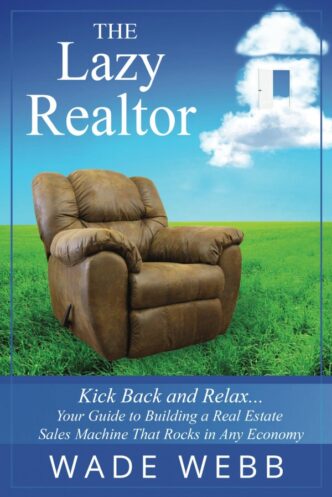 For so many years I enjoyed the gift of coaching my three children’s sports teams and I found myself as a coach referring to the kids about their mental toughness. Coaches and sport commentators freely use the term mental toughness to describe the mental state of athletes who persevere through difficult sport and life circumstances to succeed. As a player, coach and even a real estate agent we all are faced with difficult circumstances and our mental toughness plays a huge part to our sport and our real estate business success. This week I want to share 10 mental strength exercises for Realtors© to help us with our mental toughness during those difficult times.
For so many years I enjoyed the gift of coaching my three children’s sports teams and I found myself as a coach referring to the kids about their mental toughness. Coaches and sport commentators freely use the term mental toughness to describe the mental state of athletes who persevere through difficult sport and life circumstances to succeed. As a player, coach and even a real estate agent we all are faced with difficult circumstances and our mental toughness plays a huge part to our sport and our real estate business success. This week I want to share 10 mental strength exercises for Realtors© to help us with our mental toughness during those difficult times.
10 Mental Strength Exercises for REALTORS©
1. Establish goals. – The human brain is naturally predisposed to reach for and achieve goals. And not just one big goal, such as I want to lose 50 pounds. Also set more manageable short-term goals such as I want to work for 30 minutes without checking my phone or I want to reply to all my email by noon today. With each goal you achieve, you’ll gain more confidence in your ability to succeed. You’ll also learn to recognize when your goals are unrealistically ambitious and when they’re not challenging enough.
2. Set yourself up for success. – Becoming mentally strong doesn’t mean you have to subject yourself to temptations every day. Make your life a little easier by modifying the environment. If you want to work out in the morning, leave your shoes next to the bed at night and sleep in your gym clothes. If you want to eat healthier, remove the junk food from your pantry. When you set yourself up for success, you won’t exhaust your mental energy trying to resist the urge to sleep in or to dig into a bag of potato chips.
3. Tolerate discomfort for a greater purpose. – Discomfort can lead people to look for unhealthy shortcuts. Rather than deal with a problem, they reach for something that provides immediate emotional relief—drinking a glass of wine or binge-watching their favorite show, for example. But those short-term solutions can often create bigger long-term problems. Practice tolerating discomfort by reminding yourself of the bigger picture. Push yourself to work on your budget even though it causes you to feel anxious; run on the treadmill when you feel tired—don’t escape the discomfort. The more you tolerate discomfort, the more confidence you’ll have in your ability to do difficult things.
4. Reframe your negative thoughts. – Strive to develop a realistic yet optimistic inner monologue. Reframe catastrophic thoughts, such as “This will never work” with “If I work hard, I’ll improve my chances of success”. You can’t eliminate all of your negative thoughts. Everyone has rough patches and bad days. But by replacing those overly pessimistic thoughts with more realistic expectations, you can stay on course and equip yourself to manage the bad days.
5. Balance your emotions with logic. – You make the best decisions when your emotions and logic are in sync. If all your decisions were emotional, you wouldn’t save for retirement because you’d be too busy spending your money on what makes you happy right now. But if all of your decisions were logical, you’d live a boring life devoid of pleasure, leisure and love. Whether you’re buying a house or thinking of a career shift, consider the balance between your emotions and logic. If you’re overly excited or especially anxious, write down a list of the pros and cons of moving forward with the decision. Reviewing that list will boost the logical part of your brain and help balance out your emotions.
6. Strive to fulfill your purpose. – It’s hard to stay the course unless you know your overall purpose. Why do you want to earn more money or hone your craft? Write out a clear and concise mission statement about what you want to accomplish in life. When you’re struggling to take the next step, remind yourself why it’s important to keep going. Focus on your daily objectives, but make sure those steps you’re taking will get you to a larger goal in the long run.
7. Look for explanations, not excuses. – When you don’t perform as well as expected, examine the reasons why. Look for an explanation to help you do better next time, but don’t make excuses for your behavior. Take full responsibility for any shortcomings. Don’t blame others or the circumstances for your missteps. Acknowledge and face your mistakes so you can learn from them and avoid repeating them in the future.
8. Do one hard thing every day. – You won’t improve by accident. Purposely challenge yourself. Of course, what’s challenging to you might not be to someone else, so you need to analyze where your comfortable boundaries are. Then pick something slightly outside those boundaries and take one small step every day. That could mean speaking up for yourself when it’s uncomfortable or enrolling in a class you don’t feel qualified for. Push yourself to become a little better today than you were yesterday.
9. Use the 10-minute rule. – Mental strength won’t magically make you feel motivated all of the time. But it can help you be productive, even when you don’t feel like it.
When you’re tempted to put off something, use the 10-minute rule. When you eye the couch at the time you planned to go for a run, tell yourself to get moving for just 10 minutes. If your mind is still fighting your body after 10 minutes, give yourself permission to quit. Getting started is often the hardest part. Once you take the first step, you’ll realize it’s not nearly as bad as you predicted, and your other skills can help keep you going.
10. Prove yourself wrong. – The next time you think you can’t do something, prove yourself wrong. Commit to doing one more pushup at the gym or closing one more sale this month. Your mind will want to quit long before your body needs to give up. Prove to yourself you’re more capable than you give yourself credit for and over time your brain will stop underestimating your potential.
I trust these ideas can help all of us with our mental toughness and be able to help guide you in your difficult times personally and professionally. I hope this year is your best year yet!
Strength and courage,
Wade



